'My mum just wanted to be back home'
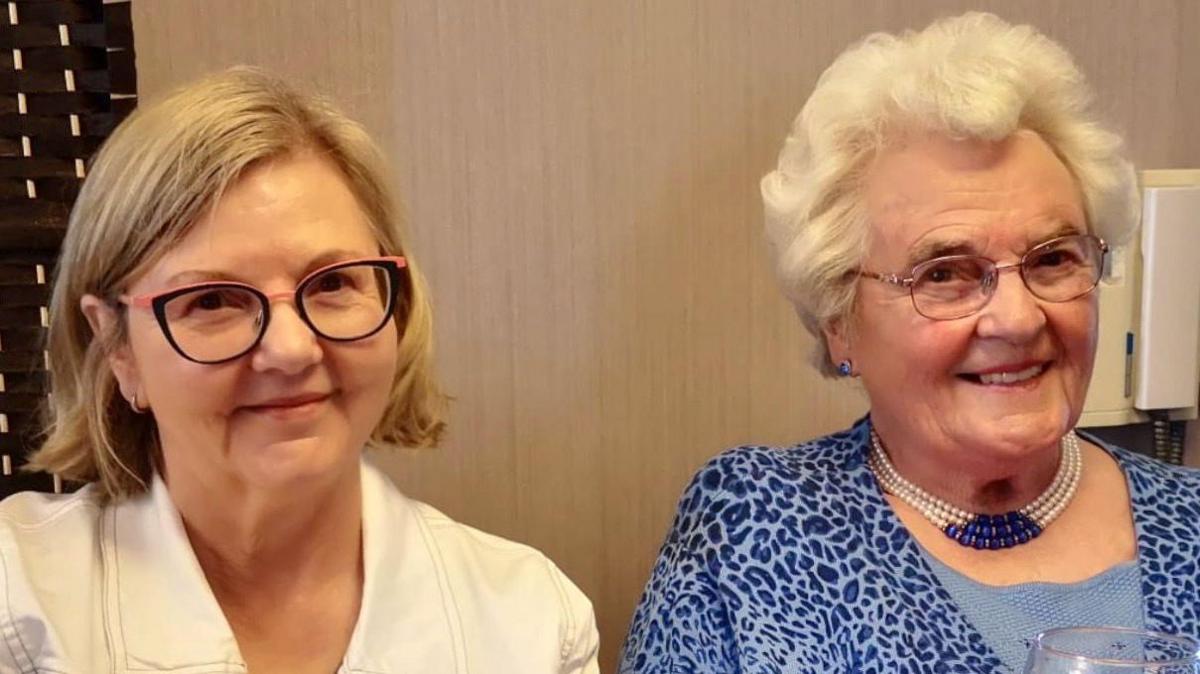
Elizabeth Lennox's mother had to stay in a care home because there was no care package available
- Published
Some patients and families are waiting years for home care packages, new figures obtained by BBC News NI can reveal.
Care packages are designed to allow people who are ill or have a disability to stay at home and to provide support to family members.
More than 3,500 people in Northern Ireland are currently waiting for a package and some of the longest delays for full and partial care packages have been up to five years.
The Department of Health acknowledged that the waiting times faced by some are “not acceptable” but said they often related to “complex” cases.
A spokesperson added: “Home care services continue to experience significant pressures across Northern Ireland and there are a range of factors currently impacting upon delivery of this service.
"This includes significant recruitment and retention issues in regard to care staff.
“Work is being taken forward by the department’s Social Care Collaborative Forum to develop a plan to grow capacity in home care across the region, a new model for home care, and to take forward key aspects of social care workforce development."
BBC News NI has also been speaking to one family about their frustrations over trying to get a care package in a rural part of Northern Ireland.
‘My mother just wanted home’
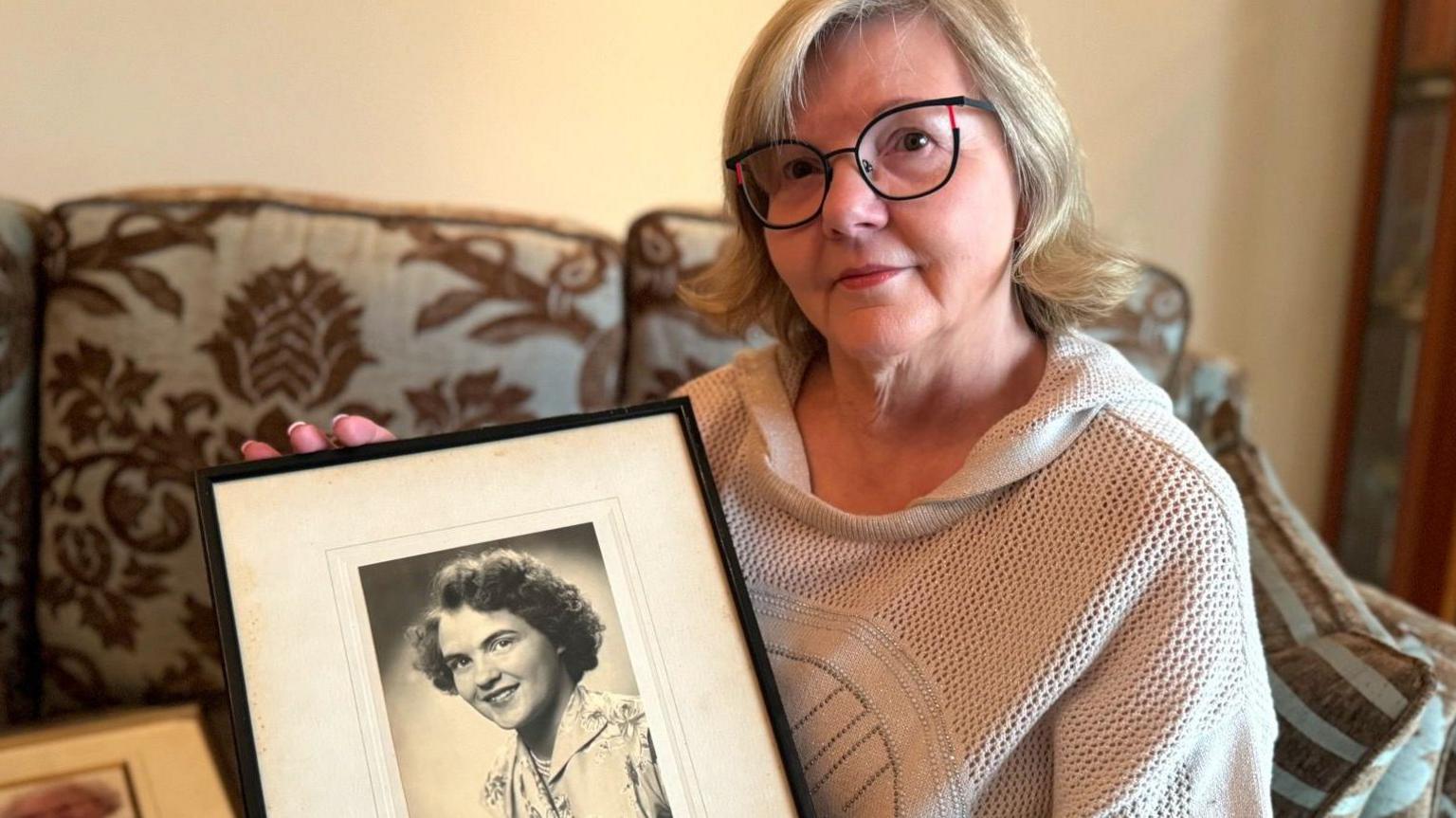
"It was difficult to watch and it did have an impact on her mental health" - Elizabeth Lennox
Elizabeth Lennox’s mother Marina was 88 years old when she lived on her own in Bellaghy, County Londonderry.
She had been in receipt of some home care that consisted of visits two times a day, once in the morning and then in the evening.
But an injury at home in June last year saw her admitted to hospital for a number of weeks.
As a result, the Northern Trust advised that she needed a more intensive care package of up to four times a day to live at home alone.
This type of care package was not available when she was being discharged from hospital and this led to her staying in a nursing home for a couple of months.
Elizabeth said it was a very stressful situation for her family.
She said: “My mother loved her independence, so the fact she was being told she was fit to go home if the right package had have been available was very frustrating for her, she was very upset.
“It was difficult to watch and it definitely did have an impact on her mental health, that experience changed her.”
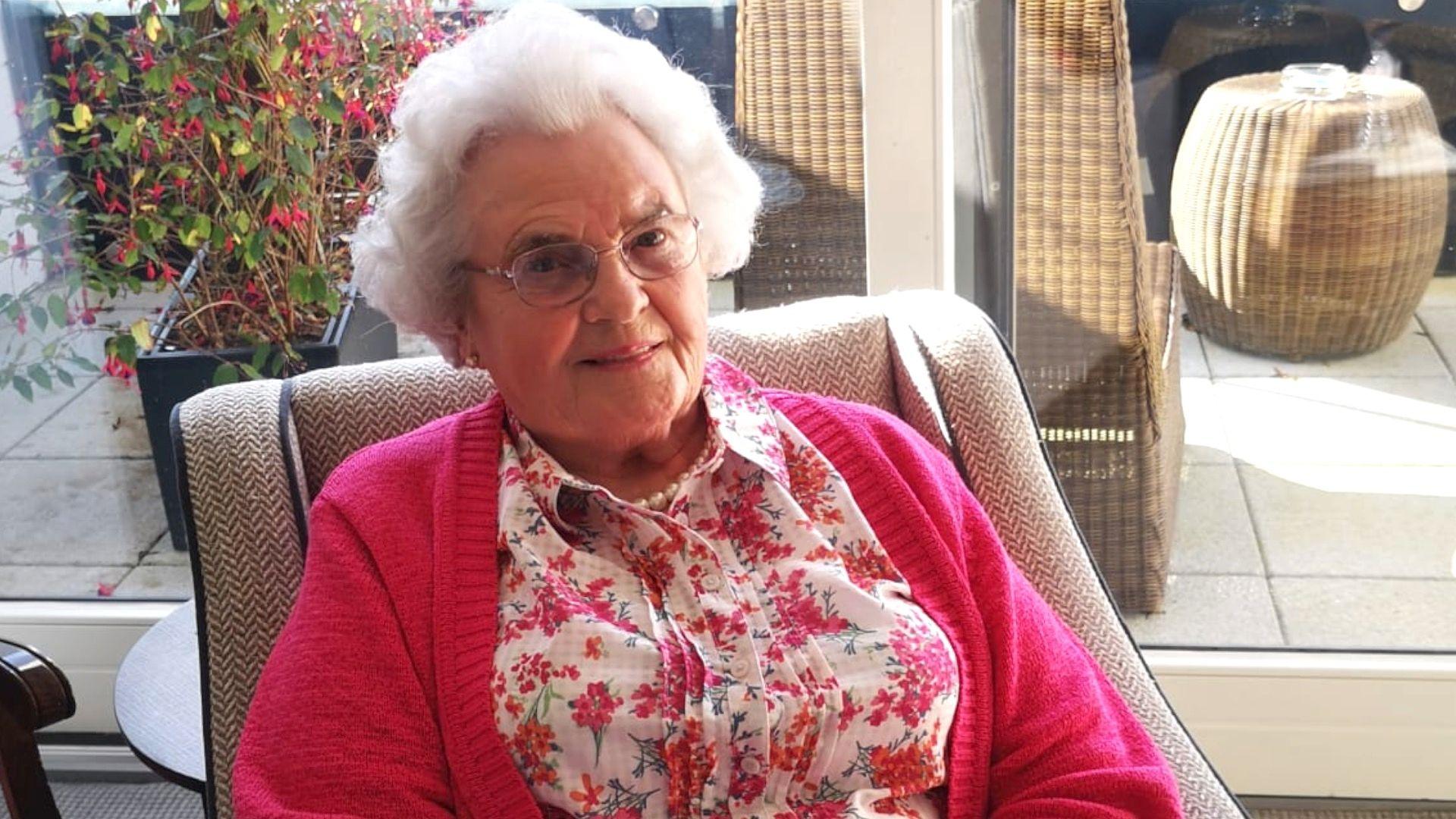
Marina Overrend had been living on her own in Bellaghy
She added: “We were basically told by health authorities that because mum lived in a rural area, there were less care providers and so that was causing the delay.
“I felt that was just so unfair, just because of where my mum lived, she wasn’t getting access to the same level of packages and all she wanted was to be back home.”
After several weeks in the nursing home, Elizabeth eventually made the decision to take her mother home to live with her just outside Cookstown.
Elizabeth sought help from the office of the Commissioner for Older People who advocated on the family’s behalf.
'People are struggling'
After months, an appropriate package of care would eventually become available, but sadly Elizabeth’s mother passed away in January this year.
Elizabeth said: “When you have an ill family member and you are also dealing with the confusing care system on top of that, it’s very distressing and overwhelming.
“I really think those in power need to look at prioritising funding and increase pay for home care workers to recruit more, because families are really struggling out there.”
The Northern Trust said it worked closely with the family to explore alternative options.
A spokesperson added: "In common with all parts of the region, the Northern Trust finds it difficult to secure capacity to meet increasing demand for domiciliary care and we acknowledge the impact of this on service users and their families."
BBC News NI asked each health trust for a breakdown of those people living at home in need of help who are waiting for a full care package as well as those who have some form of package in place but require changes or additional hours.
The main findings show:
The Department of Health confirmed that as of January 2024, the total number of individuals either waiting for a full or part package of care was 3,913, but added this number had decreased to 3,585 by April 2024.
The Northern Trust had the highest number of delayed care packages, with 1,459 people waiting as of May 2024.
As of May 2024, the Southern Trust had the longest wait for a partial care package at more than five years.
The longest wait for a full care package was four and a half years in the South Eastern Trust as of May 2024.
The South Eastern Trust said that since they released the figures for May 2024, the longest wait had been addressed and the longest waiting time was now two and a half years.
Carer packages are post-code lottery - Lynch
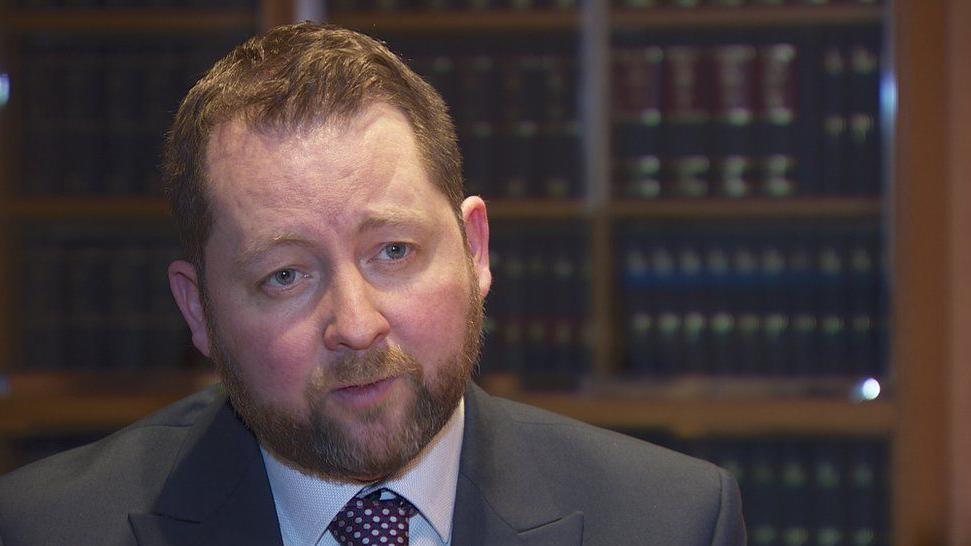
Eddie Lynch said we do not have enough carers to help the ageing population in Northern Ireland
The Commissioner for Older People, Eddie Lynch, said care packages are a post-code lottery.
"In rural areas, there's certainly areas worse affected than others - I know that from my office - Mid-Ulster has been an area in particular with shortages of care packages.
"It is a post code lottery with packages that are available," he added.
Mr Lynch said the problem is Northern Ireland does not have enough carers.
"Money is not the issue, there's simply enough carers out there."
He said to to get carers, they must be valued with better pay and terms and conditions.
"Until we address that fundamental fact we are not going to have the numbers of carers in place that we need."
He added that the ageing population must be " a top priority in government."
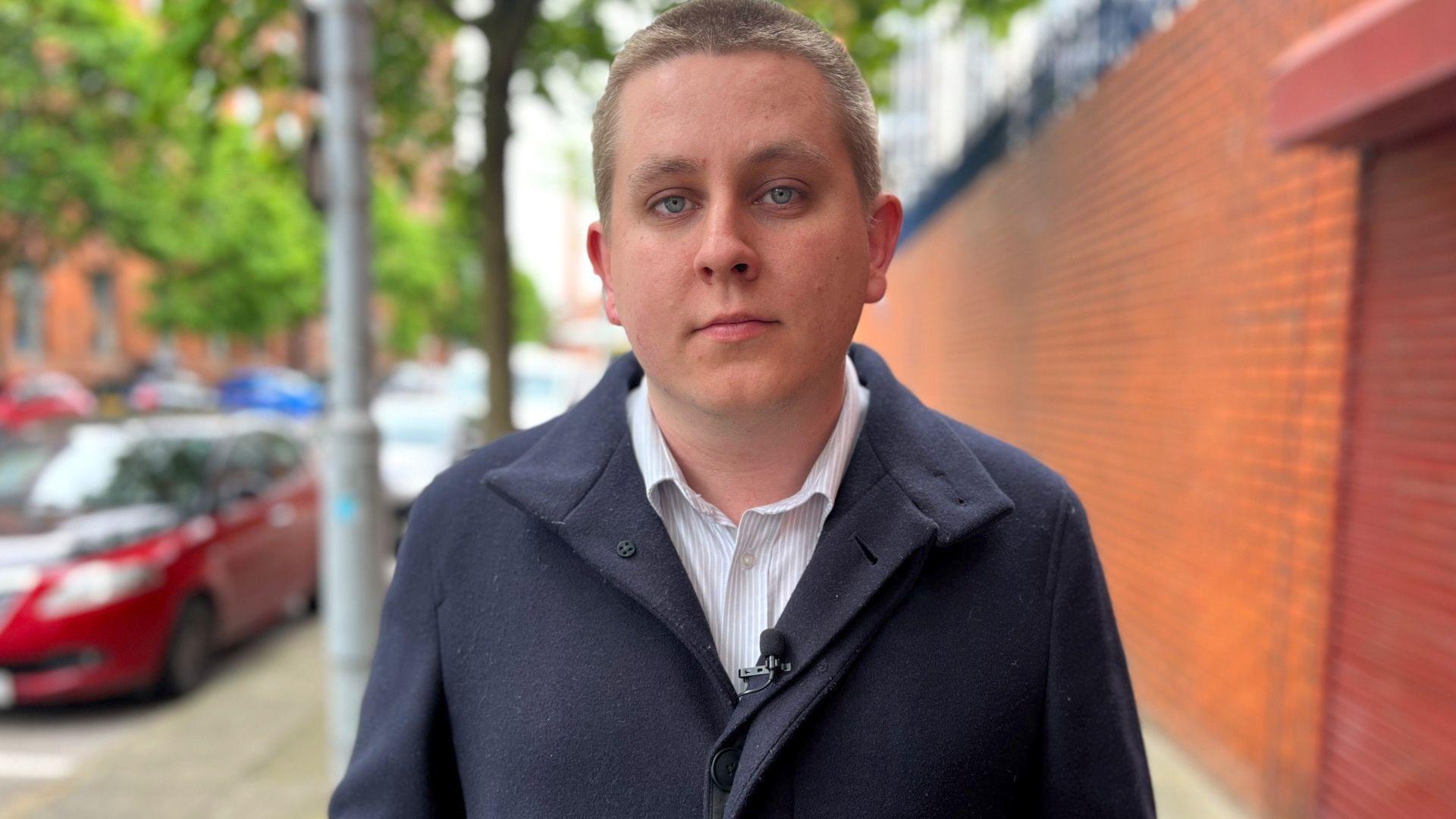
Craig Harrison from Carers NI says the figures paint a bleak picture
Carers NI says there are more than 220,000 people providing unpaid care for a sick or disabled family member or friend across Northern Ireland.
Craig Harrison, the body's policy and press officer, said the latest figures on the extent of times people are waiting for packages paints a bleak picture.
He said: “These delays deprive patients of the independence that they crave to go about their lives in the face of an illness or a disability.
“But also for their family members, the consequences are horrendous, leading to burn out and poor mental health, not having a single minute for themselves.”
He added: “If we don’t look to address this situation and find the money that’s needed to boost staff numbers and the levels of community care packages, this will only get worse.”
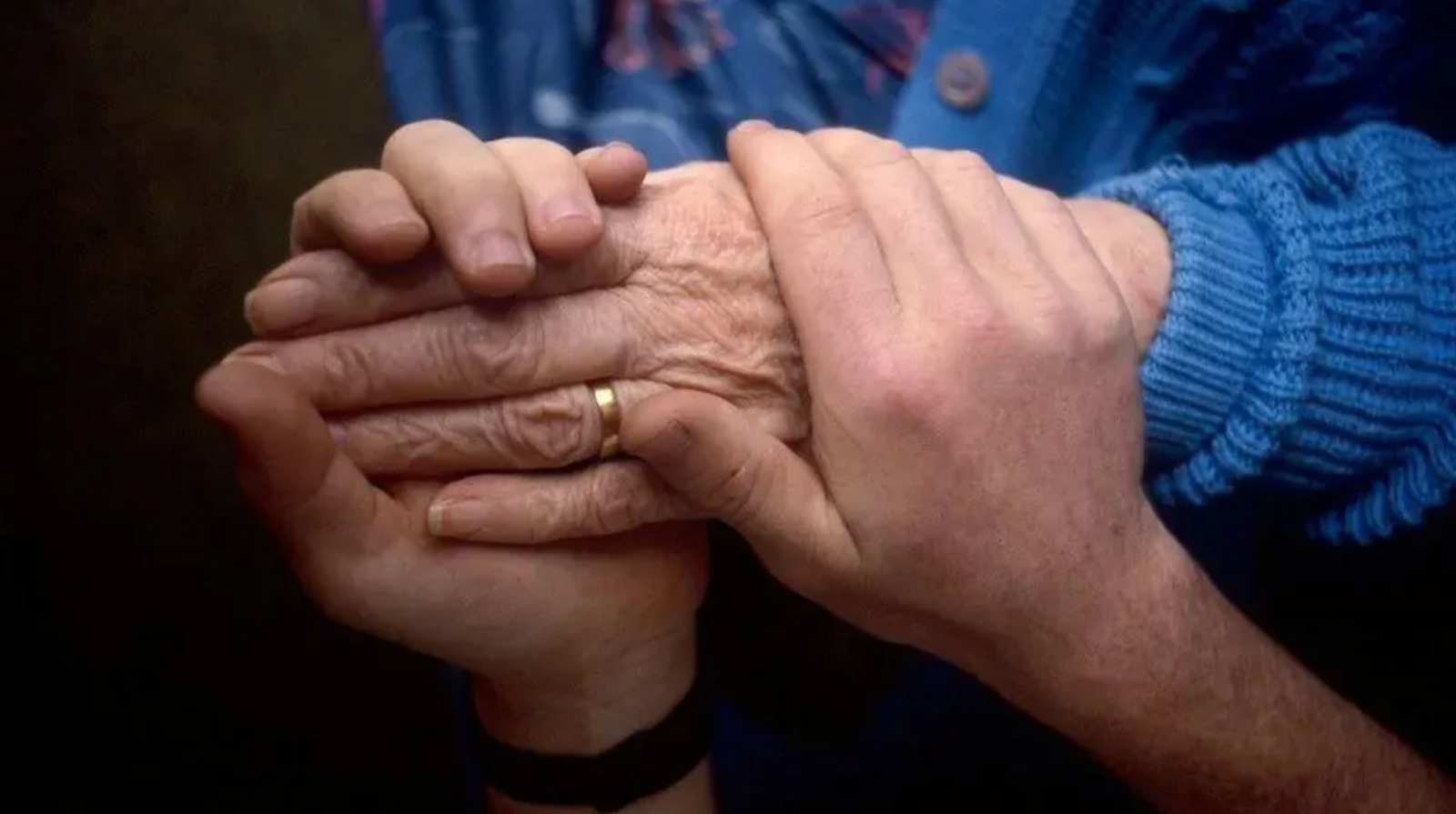
There are more than 3,500 people across Northern Ireland waiting for a care package
In March this year, the Department of Health announced a £70m funding package to help deal with rising costs.
“Where delivery of care packages have been negatively impacted due to challenges regarding capacity, trusts have in place mitigation measures to try to ensure services continue to be provided," a spokesperson added.
- Published23 November 2023
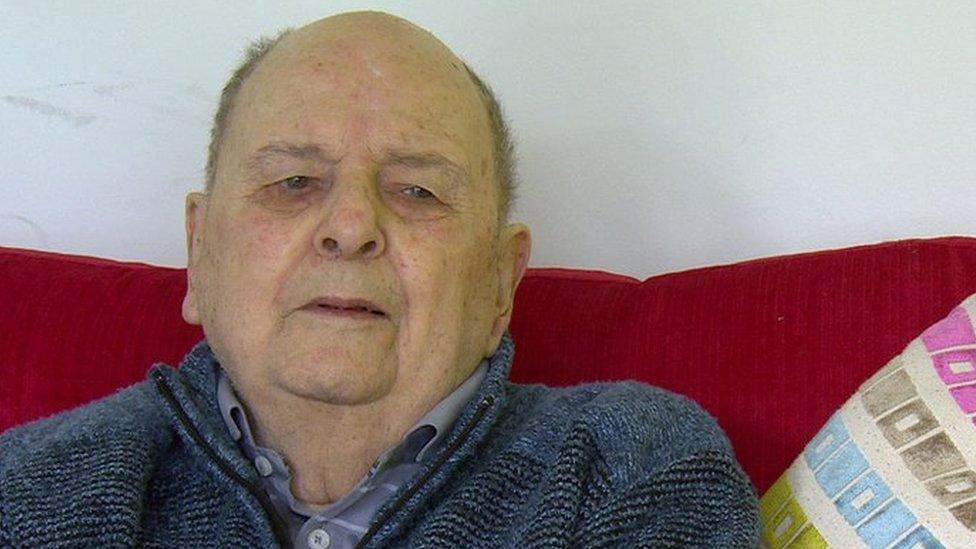
- Published22 September 2022
